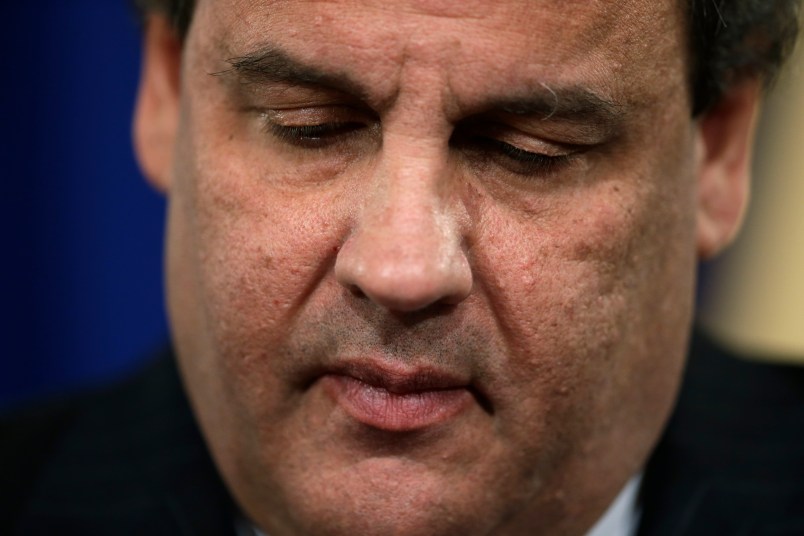The next big question in the George Washington Bridge scandal that has rattled New Jersey Gov. Chris Christie: determining whether or not anybody should be charged with a crime.
The U.S. attorney has opened a preliminary inquiry after a referral from the inspector general at the Port Authority of New York and New Jersey, which had been investigating the matter. David Wildstein, the disgraced Christie appointee at the heart of the scandal, repeatedly invoked his right to remain silent during an oversight hearing with state lawmakers. The journey toward uncovering any potential criminality is well underway.
But where does it end? Legal and ethics experts caution that we don’t have enough information to predict with much certainty. But based on what is known, they suggest a few potential threads to follow.
You’ve got a right to drive!
Interfering with peoples’ ability to drive between states by closing lanes on the George Washington Bridge between New York and New Jersey might be a crime on its own.
Law professors at two different schools pointed TPM to federal civil right laws, in particular Section 241 of Title 18 of the U.S. Code, which begins:
If two or more persons conspire to injure, oppress, threaten, or intimidate any person in any State, Territory, Commonwealth, Possession, or District in the free exercise or enjoyment of any right or privilege secured to him by the Constitution or laws of the United States, or because of his having so exercised the same …
According to Supreme Court precedent, your right to interstate travel is protected under the above statute, said Frank Askin, a professor at Rutgers University School of Law. Federal civil rights statutes also treat the use of federal interstate highways as a protected activity.
In the bridge scandal, the now-infamous “Time for some traffic problems in Fort Lee” email sent from a Christie aide in the governor’s office to a Christie ally at the Port Authority could arguably establish a conspiracy, said Burt Neuborne, a professor at New York University School of Law. Neuborne portrayed a charge based on these statutes as close to a slam dunk.
“The real question is more a prosecutorial discretion,” he said. “Is this low-level harassing kind of activity such a terrible thing? You have to decide whether you want to unload the heavy artillery.”
The usual suspects (obstruction of justice, official malfeasance, etc.)
Some of the common charges that arise whenever public corruption cases develop could arise again here, said Askin and Robert Del Tufo, a former U.S. attorney and New Jersey attorney general.
Government officials using their position of authority for nefarious ends provides the basis for those charges. Del Tufo noted that obstruction of justice charges could potentially be applied to efforts to thwart the state legislative investigation into the bridge closures. In particular, the documents that were given to state lawmakers that revealed the connection to Christie’s office were reportedly heavily redacted by a David Wildstein, a key Christie ally at the center of the scandal.
Given the nebulousness of those catch-all charges, that might be enough.
“That could fall within the obstruction rubric as well,” Del Tufo said.
And really … murder?
“I think it would be good for someone to assess the circumstances of that 91-year-old woman,” Del Tufo said, referring to a report that emergency services were delayed because of the bridge closures, including one ambulance carrying an unconscious elderly woman who later died at the hospital.
For what it’s worth, the woman’s family told the New York Times that they believed she had died in her home and the bridge closures had no effect on her death. But, depending on the ultimate circumstances, Del Tufo said that either criminally negligent homicide or involuntary manslaughter could be in play if the closures did contribute to her death.






